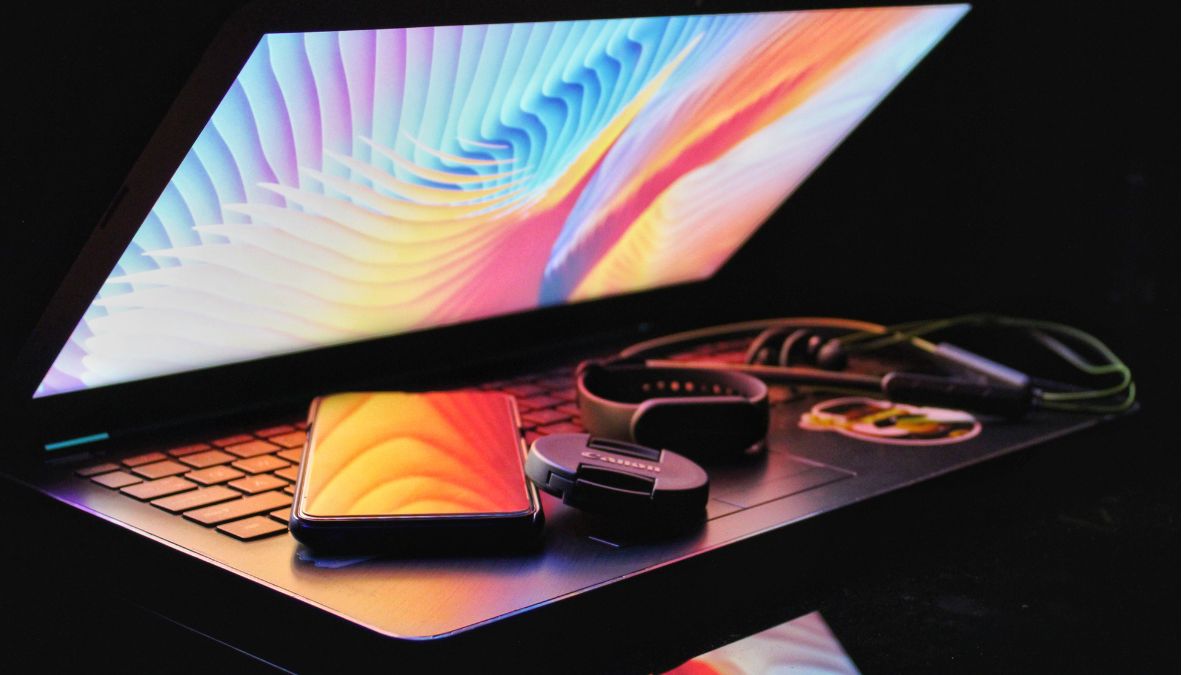Best Linux Laptops. Linux has grown from a niche operating system to a widely embraced platform, particularly for developers, tech enthusiasts, and privacy-conscious users. Choosing the right laptop to run Linux can be tricky, given the hardware compatibility issues and varying needs of users. This guide explores the best Linux laptops across various budgets to ensure you find the perfect fit.

1. Why Choose Linux Over Other Operating Systems?
Linux stands out due to its flexibility, security, and open-source nature. Unlike Windows or macOS, Linux offers complete control over the operating system, allowing users to customize their experience fully. It’s also renowned for its stability and ability to breathe life into older hardware.
2. Key Considerations When Buying a Linux Laptop
Before diving into specific models, consider these factors:
- Hardware Compatibility: Ensure the laptop’s hardware works seamlessly with Linux.
- Battery Life: Linux can be power-intensive on some laptops, so a robust battery is essential.
- Performance: Consider your intended use — light browsing, programming, or gaming?
- Pre-installed Linux vs. DIY: Some laptops come with Linux pre-installed, while others require manual installation.

3. Budget-Friendly Options Under $500
For those on a tight budget, there are excellent options that balance affordability and performance:
Acer Aspire 5
- Specifications:
- AMD Ryzen 3 3350U
- 4GB RAM
- 128GB SSD
- Why It’s Great: The Acer Aspire 5 is known for its robust build and compatibility with popular Linux distributions like Ubuntu and Mint.
Lenovo Ideapad 3
- Specifications:
- Intel Core i3
- 8GB RAM
- 256GB SSD
- Why It’s Great: The Ideapad 3 offers excellent value with ample storage and a crisp display, ideal for light users.
4. Mid-Range Powerhouses ($500-$1,000)
Mid-range Linux laptops strike a balance between price and performance, perfect for developers and multitaskers.
Dell Inspiron 15 5000
- Specifications:
- Intel Core i5
- 8GB RAM
- 512GB SSD
- Why It’s Great: Dell has a strong reputation for Linux compatibility, and this model’s performance is ideal for productivity.

System76 Lemur Pro
- Specifications:
- Intel Core i5/i7
- Up to 40GB RAM
- Up to 4TB SSD
- Why It’s Great: System76 laptops are designed specifically for Linux, offering unmatched optimization and support.
5. High-End Options ($1,000+)
High-end laptops for Linux users deliver top-notch performance and premium features for power users.
Dell XPS 13 Developer Edition
- Specifications:
- Intel Core i7
- 16GB RAM
- 512GB SSD
- Why It’s Great: Preloaded with Ubuntu, the XPS 13 Developer Edition combines a stunning design with reliable performance.
Lenovo ThinkPad X1 Carbon
- Specifications:
- Intel Core i7
- 16GB RAM
- 1TB SSD
- Why It’s Great: Known for its durability and keyboard comfort, this ThinkPad is a favorite among professionals.
6. Gaming on Linux Laptops
Linux gaming has evolved, with platforms like Steam offering robust support. Consider these options:
ASUS ROG Zephyrus G14
- Specifications:
- AMD Ryzen 9
- NVIDIA GeForce RTX 3060
- 16GB RAM
- Why It’s Great: It offers excellent Linux compatibility and stellar gaming performance.
MSI GE76 Raider
- Specifications:
- Intel Core i9
- NVIDIA GeForce RTX 3080
- 32GB RAM
- Why It’s Great: A powerful choice for gamers who also need Linux for development or work.
7. Linux Laptops for Developers
For developers, speed, reliability, and multitasking capabilities are key. These laptops deliver:
Framework Laptop
- Specifications:
- Intel Core i5/i7
- 16GB RAM
- Upgradable SSD
- Why It’s Great: Fully modular, the Framework Laptop is ideal for tinkerers and developers.
HP Dev One
- Specifications:
- AMD Ryzen 7 Pro
- 16GB RAM
- 1TB SSD
- Why It’s Great: A collaboration with Pop!_OS, the Dev One is designed for Linux developers.
8. Best Laptops for Privacy-Focused Users
Privacy enthusiasts often turn to Linux for its robust security. Here are the best options:
Purism Librem 14
- Specifications:
- Intel Core i7
- 16GB RAM
- 500GB SSD
- Why It’s Great: With physical kill switches and PureOS, the Librem 14 is the epitome of privacy.
TUXEDO InfinityBook Pro 14
- Specifications:
- Intel Core i7
- 32GB RAM
- 1TB SSD
- Why It’s Great: Designed in Germany, this laptop prioritizes open-source firmware and privacy.
9. Lightweight Laptops for On-the-Go Users
For frequent travelers or remote workers, portability is key:
ASUS ZenBook 14
- Specifications:
- AMD Ryzen 7
- 16GB RAM
- 512GB SSD
- Why It’s Great: Ultra-slim and light, the ZenBook 14 offers excellent battery life and performance.
HP Elite Dragonfly
- Specifications:
- Intel Core i7
- 16GB RAM
- 1TB SSD
- Why It’s Great: This 2-in-1 laptop is perfect for professionals needing mobility and Linux compatibility.
10. Pre-Installed Linux Laptops
Pre-installed Linux laptops save users the hassle of manual installation:
System76 Galago Pro
- Specifications:
- Intel Core i5/i7
- Up to 64GB RAM
- 1TB SSD
- Why It’s Great: Ships with Pop!_OS, offering seamless Linux performance.
Star Labs StarBook Mk V
- Specifications:
- Intel Core i3/i5
- Up to 32GB RAM
- 960GB SSD
- Why It’s Great: Customizable with various Linux distributions, it’s a versatile option for enthusiasts.
11. DIY: Installing Linux on Any Laptop
If you have a preferred Best Linux Laptops, you can install Linux manually. Consider these steps:
- Research compatibility for hardware drivers.
- Create a bootable USB with your desired Linux distribution.
- Backup your data before installation.
Popular distributions like Ubuntu, Fedora, and Arch Linux offer detailed guides for first-time installers.
12. Accessories to Enhance Your Linux Experience
To make the most of your Best Linux Laptops, consider these accessories:
- Docking Station: Expand connectivity with USB-C docks.
- External SSD: For additional storage and backups.
- Mechanical Keyboard: For an ergonomic and satisfying typing experience.
- Mouse: Linux-friendly options like the Logitech MX Master are a great choice.

Conclusion
Linux laptops cater to diverse needs, from budget-conscious users to high-end professionals. By understanding your requirements and considering hardware compatibility, you can find the perfect laptop to unlock the full potential of Best Linux Laptops. Whether you’re a developer, gamer, or privacy advocate, there’s a Best Linux Laptops for every budget.
FAQs
1. Can any laptop run Linux?
Most laptops can run Linux, but hardware compatibility varies. It’s best to research the specific model for known issues.Best Linux Laptops
2. Is Linux better for older laptops?
Yes, Linux can rejuvenate older laptops by offering lightweight distributions that run efficiently on modest hardware.Best Linux Laptops
3. What is the best Linux distribution for beginners?
Ubuntu, Linux Mint, and Zorin OS are beginner-friendly distributions with intuitive interfaces.Best Linux Laptops
4. Do Linux laptops support gaming?
Yes, with tools like Steam Proton and Lutris, gaming on Linux has improved significantly.Best Linux Laptops
5. Are Linux laptops more secure?
Linux is inherently more secure due to its open-source nature and permission-based architecture.Best Linux Laptops
6. How do I choose the right Linux laptop for development?
Focus on performance, compatibility, and multitasking capabilities. Laptops like the Framework Best Linux Laptops and System76 models are excellent choices.Best Linux Laptops
